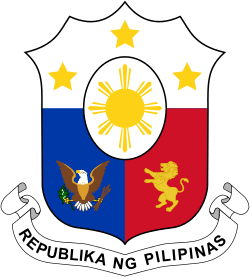Sitio
 |
| This article is part of a series on the politics and government of the Philippines |
|
Legislature |
|
Constitutional Commissions |
A sitio in the Philippines is a territorial enclave that forms part of a barangay. Typically rural, a sitio's location is usually far from the center of the barangay itself and could be its own barangay if its population were high enough. Sitios are similar to puroks, but the latter are more urban and closer to the barangay's center, especially the barangay hall.
During the Spanish colonial period, the colonial government employed the Reducción policy, allowing the remapping of various settlements. Several far-flung hamlets were identified, named, and organized into "sitios" so that municipalities and cities could more easily be governed through the barangay system, then known as the barrio system.[1][2] The sitio does not have an independent administration; it is established purely for organisational purposes.
See also
References
- ↑ Abinales, Patricio N.; Amoroso, Donna J. (2005). "New States and Reorientations 1368-1764". State and Society in the Philippines. Lanham, Md.: Rowman & Littlefield. pp. 53, 55. ISBN 0742510247. Retrieved 15 January 2015.
- ↑ Alas, José Mario “Pepe”. "28 July 1571: The Foundation Date of the Province of La Laguna". Academia.edu. Retrieved 15 January 2015.